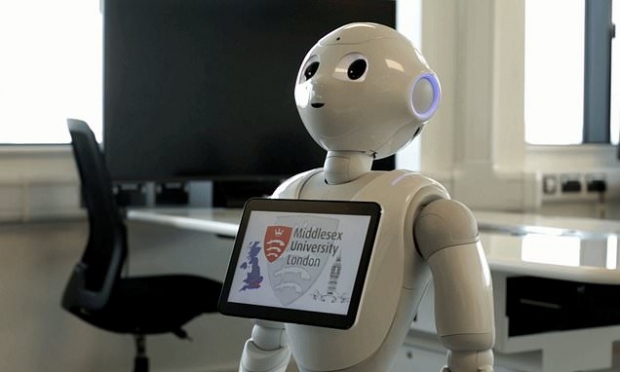The move has created a bit of a stir because it is the first time that Parliament has asked a dolly for its point of view on anything.
The UK Parliament has asked non-humans to testify before and indeed many politicians are non-humans, but robots have been a different matter.
According to a press release from one of Parliament's select committees - groups of MPs who investigate an issue and report back to their peers - it has invited Pepper the robot to 'answer questions' on the impact of AI on the labour market.
"Pepper is part of an international research project developing the world's first culturally aware robots aimed at assisting with care for older people", said the release from the Education Committee. "The Committee will hear about her work [and] what role increased automation and robotics might play in the workplace and classroom of the future."
Of course it is a stunt, but with the UK about to bankrupt itself with a hard Brexit, politicians need to cheer themselves up a bit.
Pepper the robot cannot give such evidence. It can certainly deliver a speech the same way Alexa can read out the news, but it can't formulate ideas itself.
As one researcher told MIT Technology Review: "Modern robots are not intelligent and so can't testify in any meaningful way." Parliament knows this. In an email to The Verge, a media officer for the Education Committee confirmed that Pepper would be providing preprogrammed answers written by robotics researchers from Middlesex University, who are also testifying on the same panel.
"It will be clear on the day that Pepper's responses are not spontaneous", said the spinner. "Having Pepper appear before the Committee and the chance to question the witnesses will provide an opportunity for members to explore both the potential and limitations of such technology and the capabilities of robots."
MP Robert Halfon, the committee's chair, told education news site TES that inviting Pepper was "not about someone bringing an electronic toy robot and doing a demonstration" but showing the "potential of robotics and artificial intelligence".
He added: "If we've got the march of the robots, we perhaps need the march of the robots to our select committee to give evidence."




